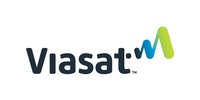Virgin Mobile, MetroPCS Update Subscriber Data
By Wireless Week Staff
Virgin Mobile USA announced its fourth-quarter and 2008 subscriber data today, following the same update yesterday from MetroPCS.
Virgin said its quarterly net additions were 216,000, with churn of 4.8%. The company now has a total of 5.38 million subscribers.
“Our new offers have helped lead to strong customer growth and improved retention as consumers look for value and flexibility during uncertain economic times,” CEO Dan Schulman said. “Our hybrid plans continue to grow in popularity, accounting for over 50% of our gross adds in October and November and 29% of our subscriber base at the end of November. We expect the growth of these plans to lead to continued improvement in ARPU trends in the fourth quarter of 2008,” he said in a prepared statement.
MetroPCS said its quarterly net additions were 520,000, with churn of 5.1%. Its total subscribers number 5.4 million.
“We are very pleased to report fourth-quarter net additions of 520,000, the highest quarterly net additions in company history. During the fourth quarter and for the full year 2008, our strong subscriber growth continues to prove the resiliency of the MetroPCS business model in the midst of the current unprecedented economic environment,” CEO Roger Linquist stated. “This year, for the sixth consecutive year, we have grown our subscriber base by 35% or higher. We are excited about our future growth potential given current landline replacement trends.”
Another prepaid specialist, Leap Wireless, said yesterday it has signed a managed services contract with Convergys for a new billing system. Leap and its subsidiary Cricket Communications previously were customers of VeriSign, officials said.
Prepaid systems are increasingly popular and are likely to be adopted by traditional postpaid carriers this year.
Data Outage, New Apps Grab iPhone Attention
By Evan Koblentz
Companies supporting Apple’s iPhone continue to announce unique products and services around Macworld and the Consumer Electronics Show this week, but exclusive U.S. service provider AT&T stole the spotlight with another data outage.
Widespread reports, including on Apple’s community forum, indicated a network glitch affecting customers from Maine to Maryland. An AT&T spokesman said the outage was resolved but did not provide details.
Yet the new iPhone technology keeps rolling in. Apple itself announced that iPhone 3G users can now download content directly from iTunes; previously a computer was required as the middleman. Also, the majority of iTunes music is now available without digital rights restrictions, the company said.Songs already purchased can be made DRM-free for an additional 30 cents, which equals the higher price of $1.29 for fresher music in the iTunes catalog.
Rumors of new ways to use the iPhone as a tethered laptop modem, along with buzz about possible new models of the phone itself, also continue to circulate.
Meanwhile, third-party announcements this week include Cisco Systems creating an iPhone version of its popular WebEx software; an application called Craigsphone to natively support the ubiquitous classifieds site; Truphone brings support for Skype, Twitter and various instant-messaging programs; Internet filtering software from InternetSafety.com; an AdMob download tracking program; and the announcement of a new conference called iGames Summit scheduled for March 19 in San Francisco.
Clearwire Launches Mobile WiMAX in Portland
By Monica Alleven
PORTLAND, Ore.—Clearwire launched its Clear-branded mobile WiMAX service here yesterday, claiming it’s making Portland the fastest unwired city in the West.
The launch was accompanied by a marketing blitz – new billboards, TV commercials and even cupcakes in giant bubbles situated outside the World Trade Center Plaza. The cupcakes and bubbles are featured in separate Clearwire commercials.
Clearwire CEO Ben Wolff told a room packed with journalists and analysts that the company has been working on the Portland network for the past two years. Why launch its first Clear market in Portland? Wolff, who attended law school here, explained that Portland is a tech-savvy city, home to one of Intel’s largest offices and close to Clearwire’s corporate headquarters in Kirkland, Wash. Asked if the terrain posed challenges, Wolff said it is a challenging market, between the hilly terrain, foliage and water, but the expectation is deployments will get easier in other markets, such as Phoenix.
Clearwire isn’t giving a definitive timeframe for upcoming markets, but executives have publicly talked about Las Vegas and Atlanta. Clearwire late last year closed its merger with Sprint’s Xohm WiMAX properties, and Sprint launched mobile WiMAX in Baltimore, Md., last year, making these two cities the first to have the latest WiMAX technology. Sprint also has mentioned Chicago and Boston among markets near commercial launch.
Clearwire has about 46 pre-WiMAX markets that it is in the process of converting over to mobile WiMAX. In an interview, Wolff said Seattle is one likely market to get converted in 2009. But the rate at which Clearwire will deploy new markets will be decided by the board when it meets later this month, he said. Management is composing various scenarios for the board to consider, from a fast build to a slow one and alternatives in between. The rate at which Clearwire builds out will depend on how much cash it has on hand and is able to raise. It already has $3.2 billion from investors Comcast, Intel, Time Warner Cable, Google and Bright House Networks.
Interestingly, Clearwire’s Portland tiered price plans differ from those offered in Baltimore, and Wolff said it’s likely that price plans will differ in other new markets as well. That’s one of the advantages of being a small company and something the likes of AT&T and Verizon Wireless would find difficult if not impossible to do – experiment with various price plans in different markets to see what sticks with consumers, he said.
In Portland, a mobile Internet plan runs $50 a month for unlimited usage; other plans are offered for less frequent usage, and there’s a day pass for $10. The top end of the home Internet plans is $40 a month, and customers can save $20 a month by combining home Internet and mobile Internet for the first six months of a 2-year agreement, according to a brochure.
As for launching a new network in these challenging economy times, executives at yesterday’s launch said they believe people will be looking to cut their budgets where they can, but they don’t want to give up Internet service. Wolff said he figures families spend $200 to $300 a month on collective services like broadband and residential voice service, and a customer would pay about $150 for comparable offerings from Clearwire. A Clear-branded voice service isn’t available yet but it’s in the pipeline, and VoIP services like Skype are available.
Nokia S60 Series Subject to SMS Exploit
By Evan Koblentz
An easy-to-do SMS attack against numerous versions of Nokia’s S60 operating system is starting to make the rounds on YouTube.
The attack, known as the “Curse of Silence,” which can render a phone unable to receive text messages until a hard reset is performed, was demonstrated at the recent Chaos Communications Congress and was reported last week by bloggers at security company F-Secure.
Chief Security Advisor Patrik Runald said the silver lining is that such an exploit on typically well-secured Nokia phones might push the world’s best-selling handset manufacturer to work harder at testing its products.
Nokia officials could not be reached for comment about a possible patch. However, “generally, it’s kind of cumbersome, you have to download a specific tool. It might be possible over-the-air to fix a specific bug, but whether or not they’re going to do that, I haven’t heard,” Runald added.
The world is likely to see more mobile hacks when there is wider use of mobile financial software. “The motive at the end of the day is always financial. In the mobile space, the motive up until now has always been cracks, or for fun, or just plain evil,” he said.
F-Secure’s own mobile security product debuted in 2001. Runald acknowledged there probably wasn’t much of a threat at that point.
“We figured there’s going to be a threat and eight years later we’re still not there. We still believe something’s going to happen and without spreading FUD, I think it’s just a matter of time,” he said, referencing the industry term for fear, uncertainty and doubt. “Whether that time is six months or six years is hard to tell.”
S60 was also the subject of a rash of security issues in March, April and June of 2005.
Elsewhere in mobile security, Positive Networks today said it’s now called PhoneFactor, which is also the name of its flagship two-factor authentication software.
FirstNews Briefs for Jan. 7, 2008
Companies in the News: T-Mobile, Research In Motion, Verizon Wireless, Amazon, Cinterion
• T-Mobile USA today confirmed the rumor that it will begin selling the Research In Motion (RIM) BlackBerry Curve 8900 next month. The probable date is Feb. 11, according to T-Mobile fan blog Tmonews.com. The smartphone is widely known by the codename Javelin and is receiving good reviews in Europe.
• Verizon Wireless expects competitors of the Amazon.com Kindle e-book reader to arrive this year, according to a Reuters report. Verizon is expected to emphasis such technology at the Consumer Electronics Show in Las Vegas this week.
• Cinterion Wireless Modules, formerly Siemens, said its 2008 sales exceeded $100 million for GSM/GPRS/EDGE/HSDPA modules in the Americas. That region also now includes South America, the company announced.
Filed Under: Infrastructure




